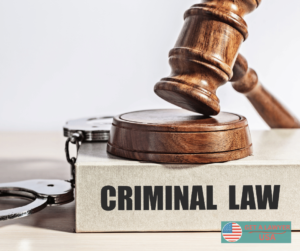- What Is the Distinction between Types of Crimes, Felony, Misdemeanor, Infractions?
A felony is a serious criminal offense, such as murder or grand theft, and carries a potential prison sentence of more than one year.
A misdemeanor is a less serious criminal offense, such as disorderly conduct or petty theft, and carries a potential sentence of less than one year in a local or county jail.
An infraction is a non-criminal violation of a law or ordinance, such as a traffic violation, and carries a fine or administrative penalty but no jail time.
- What Are the Different Roles of Law Enforcement?
Law enforcement officers play several roles in dealing with drunk driving/DUI cases. These include:
- Patrolling: Officers are responsible for patrolling the roads and looking for signs of impaired driving, such as swerving or running traffic lights.
- Stop and arrest: If an officer suspects a driver is under the influence, they will pull the vehicle over and conduct a series of sobriety tests. If the driver fails these tests or refuses to take them, the officer will arrest the driver for DUI.
- Investigation and evidence collection: Once a driver is arrested for DUI, the officer will investigate the scene and collect evidence such as the driver’s blood alcohol content (BAC) level, the results of sobriety tests, and the driver’s behavior and appearance.
- Testifying in court: If the case goes to trial, the officer may be called as a witness to testify about the arrest and the evidence they collected.
- Enforcing laws and regulations: Law enforcement officers are responsible for enforcing all laws and regulations, including those related to drunk driving. They will also enforce laws related to open containers, and also any other vehicle code violation that is noticed while conducting a DUI investigation.
- Providing public safety: Law enforcement officers also play an important role in promoting public safety by enforcing laws against drunk driving, which can help reduce the number of DUI-related accidents and fatalities on the roads.
- What Are the Different Tools Criminal Defense Lawyers Have Available to Help Their Clients?
Criminal defense lawyers have a variety of tools available to help their clients, some of which include:
- Investigation: Criminal defense lawyers will often conduct their own investigation into the case, gathering evidence and interviewing witnesses to help build a strong defense.
- Motion practice: Lawyers can file motions to suppress evidence that was obtained illegally or in violation of the client’s constitutional rights. They can also file motions to dismiss the case if there is insufficient evidence or if the prosecution has violated the defendant’s rights.
- Negotiating a plea bargain: In some cases, a lawyer may negotiate a plea bargain with the prosecution, in which the defendant pleads guilty to a lesser charge in exchange for a reduced sentence.
- Challenging the prosecution’s case: Criminal defense lawyers will often challenge the prosecution’s case by pointing out weaknesses or inconsistencies in the evidence and testimony presented.
- Expert Witnesses: Criminal defense lawyers can also use expert witnesses to help defend their clients. These experts can include forensic scientists, medical experts, mental health experts, and accident reconstruction experts.
- Appealing a conviction: If the client is found guilty, the lawyer may file an appeal to a higher court in order to challenge the conviction and sentence.
- Preparing for trial: Criminal defense lawyers will also prepare their clients for trial by helping them understand the legal process and the potential outcomes of the case and by helping them to present their best defense in court.
- Providing guidance and support: Criminal defense lawyers also play an important role in providing guidance and support to their clients throughout the legal process. They will work to ensure their clients understand their rights and the options available to them and will help them make informed decisions about their cases.
- Do Police Actually Say You Have the Right to Remain Silent like on T.V., And If So, Why?
Yes, police officers do say, “you have the right to remain silent” when they are making an arrest or conducting an investigation. This is known as the Miranda warning, which is named after the landmark Supreme Court case Miranda v. Arizona (1966).
The purpose of the Miranda warning is to inform a person in custody of their rights under the Fifth Amendment of the U.S. Constitution, which protects citizens from self-incrimination.
- Will the Government Really Give You a Lawyer?

The government’s duty to provide a lawyer for a criminal defendant is established by the Sixth Amendment of the U.S. Constitution, which guarantees the right to counsel. This means that if a person cannot afford a lawyer, the government must appoint one for them. This is known as a court-appointed lawyer or public defender.
When a person is first arrested, they are typically given a Miranda warning and advised of their right to an attorney. If they cannot afford one, a public defender will be appointed for them. The public defender will then represent the defendant throughout the entire criminal process, including during the initial hearing, the trial, and any appeals.
- Can I Question the Cops If They Arrest Me, and What Can I Find Out About the Officer That Arrested Me?
Yes, you have the right to question the police officers if they arrest you, as long as you are respectful and do not interfere with the arrest. However, you should be aware that anything you say to the officers can be used as evidence against you in court.
Therefore, it is generally advisable to speak with a lawyer before making any statements to the police.
- What Is Bail, and How Does It Work?
Bail is a system used in the criminal justice system to allow a defendant who has been arrested and charged with a crime to be released from custody while they await trial.
The purpose of bail is to ensure that the defendant will return to court for their trial while also protecting the community from potential harm.
- What Is the Three Strikes Law?
The Three Strikes Law is a sentencing law that was first implemented in the United States in the 1990s. It is designed to impose harsher sentences on repeat offenders who have been convicted of three or more serious or violent crimes. The law is intended to keep repeat offenders off the streets and protect communities from dangerous criminals.
- If I Am Convicted, How Is the Sentence Determined?
Criminal sentencing is determined by a number of factors, including the severity of the crime, the defendant’s criminal history, and any mitigating or aggravating circumstances. Some of the key factors that are considered in determining a sentence include:
- The nature and circumstances of the crime: This includes the severity of the crime, the harm caused to victims, and whether any special circumstances were involved (such as the use of a weapon or the vulnerability of the victim).
- The defendant’s criminal history: This includes any prior convictions, the length of time since the last conviction, and the defendant’s behavior while on probation or parole.
- Mitigating and aggravating circumstances: Mitigating circumstances may include the defendant’s remorse or cooperation with law enforcement, while aggravating circumstances may include the defendant’s use of violence or a leadership role in a criminal organization.
- The defendant’s personal characteristics: This can include things like their age, mental health, and family circumstances.
- The Sentencing Guidelines: Many states have sentencing guidelines that judges must follow. These guidelines take into account the offense, offender, and community needs.
All these factors are weighed by the judge or jury to determine an appropriate sentence, which can range from probation or community service to imprisonment.
- Which States Have the Death Penalty, and What Crimes Result in the Death Penalty?
The death penalty, also known as capital punishment, is a legal punishment in which a person is put to death by the state as a consequence of a crime. As of 2023, the death penalty is legal in 27 states.
The crimes that can result in a death penalty conviction vary by jurisdiction, but there is typically a death penalty for child rapists, murderers, and war criminals.
Do I Need to Hire a Criminal Lawyer?
If you have further questions about criminal law, you should hire a criminal defense lawyer.
A criminal defense lawyer can represent your best interests in court and help resolve your legal issues positively.









